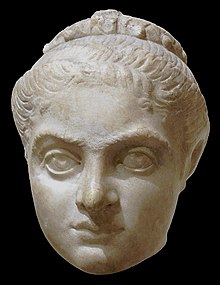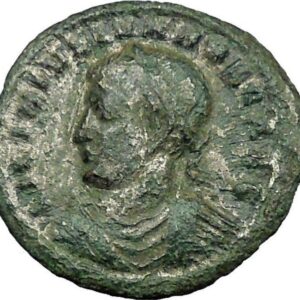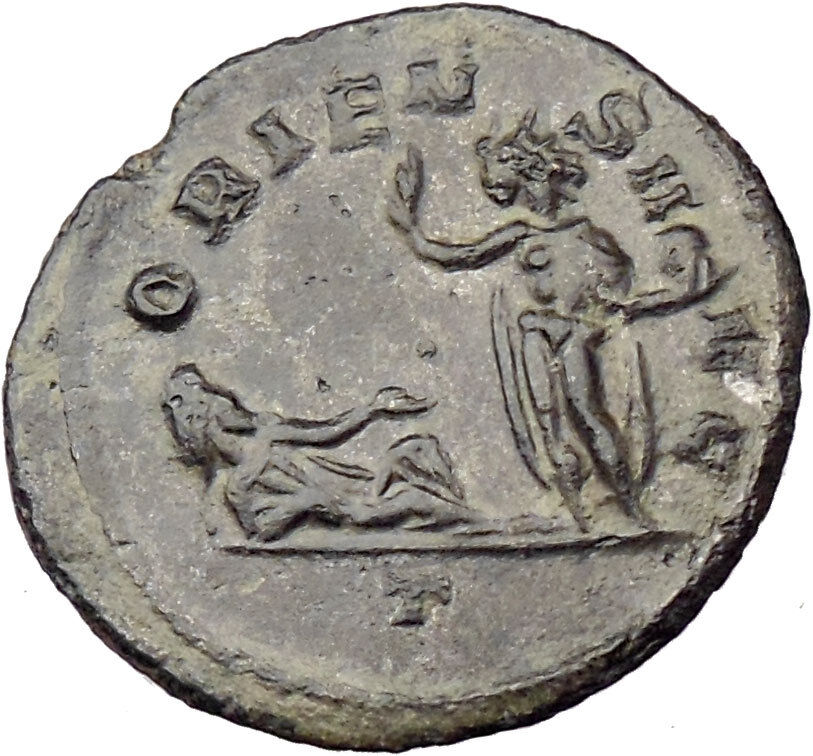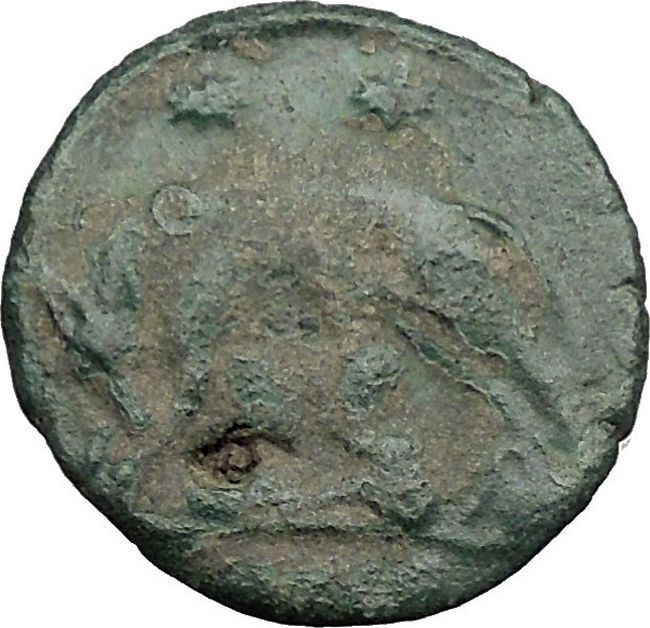|
Fausta – Roman Empress: 324-326 A.D. – wife of Constantine I ‘The Great’
Bronze AE3 19mm (2.82 grams) Thessalonica mint 324-326 A.D.
Reference: RIC 161
Certification: NGC Ancients Ch AU 4375823-394
FLAVMAXFAVSTAAVG – Draped bust right.
SALVSREIPVBLICAE Exe: SMTSA – Fausta, as Salus, holding her two sons, Constantine II and Constantius II.
You are bidding on the exact item pictured, provided with a Certificate of Authenticity and Lifetime Guarantee of Authenticity.
Fausta – Roman Empress: 324-326 A.D.
 | Second wife of Constantine the Great | Mother of Constantine II, Constantius II, Constans, Constantina (wife of Hanniballianus & Constantius Gallus) and Helena the Younger (wife of Julian II | Daughter of Maximian and Eutropia | Sister of Maxentius | Step-mother of Crispus | Daughter-in-law of Helena and (posthumously) of Constantius I | Aunt of Romulus | | Second wife of Constantine the Great | Mother of Constantine II, Constantius II, Constans, Constantina (wife of Hanniballianus & Constantius Gallus) and Helena the Younger (wife of Julian II | Daughter of Maximian and Eutropia | Sister of Maxentius | Step-mother of Crispus | Daughter-in-law of Helena and (posthumously) of Constantius I | Aunt of Romulus |
Fausta Flavia Maxima (289–326) was a Roman Empress, daughter of the Roman Emperor Maximianus. To seal the alliance between them for control of the Tetrarchy, in 307 Maximianus married her to Constantine I, who set aside his wife Minervina in her favour.
Fausta had a part in her father’s downfall. In 310 Maximian died as a consequence of an assassination plot against Constantine. Maximian decided to involve his daughter Fausta, but she revealed the plot to her husband, and the assassination was disrupted. Maximian died, by suicide or by assassination, in July of that same year.
Empress Fausta was held in high esteem by Constantine, and proof of his favour was that in 323 she was proclaimed Augusta; previously she held the title of Nobilissima Femina. However three years later Fausta was put to death by Constantine, following the execution of Crispus, his eldest son by Minervina, in 326. The two deaths have been inter-related in various ways; in one, Fausta is set jealously against Crispus, as in the anonymous Epitome de Caesaribus, or conversely her adultery, perhaps with the stepson who was close to her in age, is suggested. Fausta was executed by suffocation in an over-heated bath, a mode of assassination not otherwise attested in the Roman world. David Woods offers the connection of overheated bathing with contemporaneous techniques of abortion, a suggestion that implies an unwanted, adulterous pregnancy according to Constantine’s biographer Paul Stephenson.
The Emperor ordered the damnatio memoriae of his wife with the result that no contemporary source records details of her fate: “Eusebius, ever the sycophant,mentions neither Crispus nor Fausta in his Life of Constantine, and even wrote Crispus out of the final version of his Ecclesiastical History (HE X.9.4)”, Constantine’s biographer Paul Stephenson observes.
Significantly, her sons, once in power, never revoked this order. Her sons became Roman Emperors: Constantine II reigned 337 – 340, Constantius II reigned 337 – 361, and Constans reigned 337 – 350. She also bore three daughters Constantina, Helena and Fausta. Of these, Constantina married her cousins, firstly Hannibalianus and secondly Constantius Gallus, and Helena married Emperor Julian. Apparently a genealogical claim that her daughter Fausta became mother of Emperor Valentinian I is without foundation (Valentinian I and children of Constantine I’s second marriage were born in years close to each other, i.e., they were of the same generation).
|








 | Second wife of Constantine the Great | Mother of Constantine II, Constantius II, Constans, Constantina (wife of Hanniballianus & Constantius Gallus) and Helena the Younger (wife of Julian II | Daughter of Maximian and Eutropia | Sister of Maxentius | Step-mother of Crispus | Daughter-in-law of Helena and (posthumously) of Constantius I | Aunt of Romulus |
| Second wife of Constantine the Great | Mother of Constantine II, Constantius II, Constans, Constantina (wife of Hanniballianus & Constantius Gallus) and Helena the Younger (wife of Julian II | Daughter of Maximian and Eutropia | Sister of Maxentius | Step-mother of Crispus | Daughter-in-law of Helena and (posthumously) of Constantius I | Aunt of Romulus |




